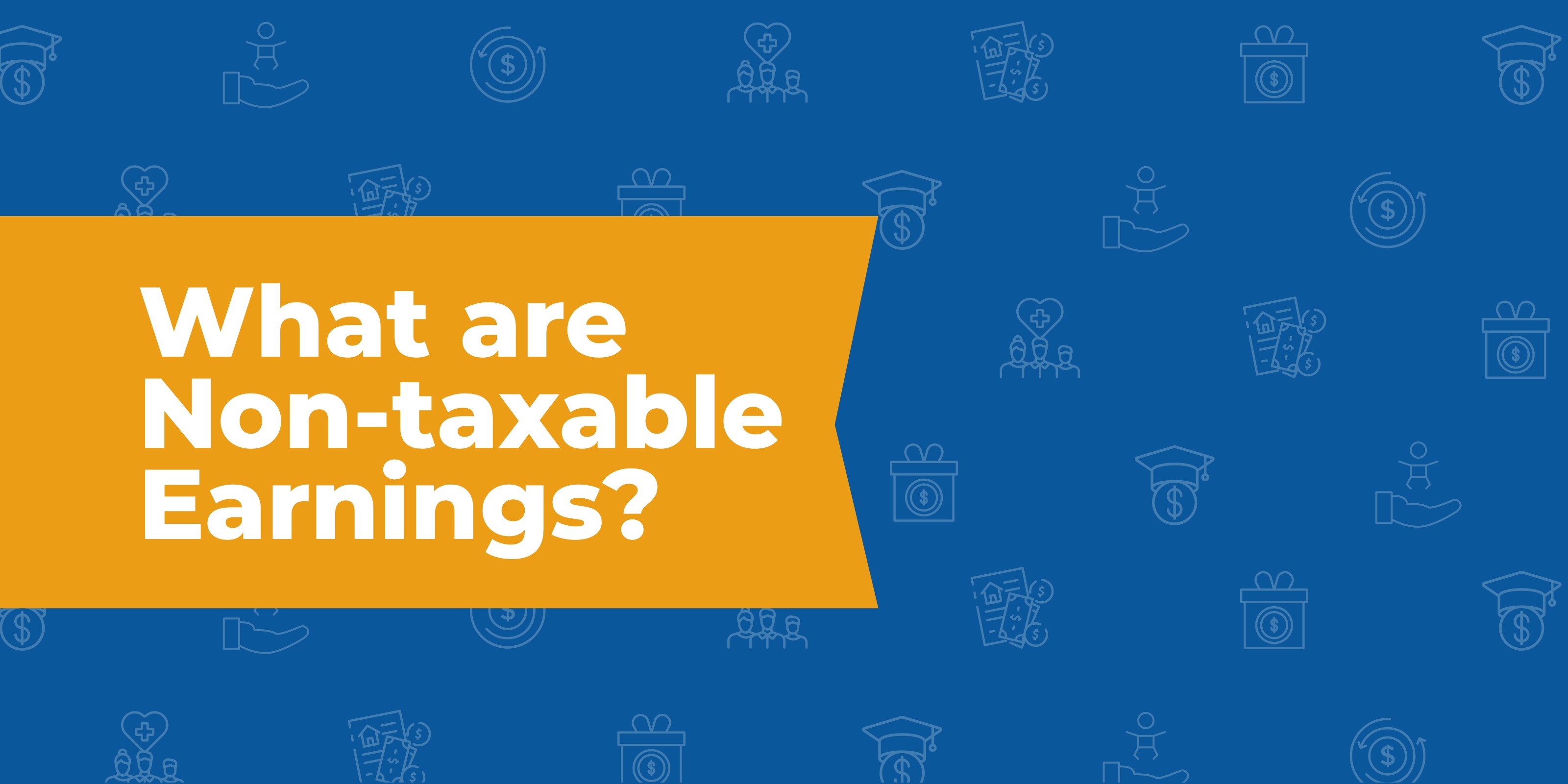
There are instances where income will not be taxed, whether or not you report it during tax season. Understanding which earnings are taxable versus non-taxable could save you a lot of time and trouble when you file your tax returns.
Non-taxable earnings
The following forms of income are non-taxable:
- Most healthcare benefits
- Scholarships and student loans
- Welfare payments
- Reimbursements
- Child Support payments
- Inheritance
- Gifted money (unless of significantly high value)
- Alimony
- Cash rebates
In order for income to be considered non-taxable, it must be legally exempt.
Taxable vs Non-taxable Income
Some examples of taxable income would be employee wages, or constructively received income. Constructively received income is income that is available to you before the end of the tax year. This could be in the form of cash or deposit.
If an agent receives income on your behalf, this is called assignment of income. Assignment of income is still taxable, even if a third party is accepting your earnings.
Prepaid income is another taxable compensation that may include payment for future services.
Are royalties non-taxable income?
Copyrights, patents, and other properties such as oil and gas are examples of royalties. These items are taxable as income.
Are business and investment earnings non-taxable?
Business earnings such as rental properties and other investments are very much taxable. Business owners are required to pay taxes quarterly to cover Social Security and Medicare tax.
While non-profit agencies are tax exempt, you still have obligations to file a return.
What to do if you have a tax liability?
Taxable and non-taxable income can be a confusing topic. It’s best to ask a professional for assistance if you’re unsure about how or when to report income. Should you find yourself in the midst of a tax liability that is unaffordable, give Optima a call at (800) 536-0734 for a free consultation.